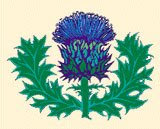The following is from a Reading Guide to the Little Stranger at Penguin.com. The interview with Sarah Waters also addresses where the name of Hundreds Hall comes from.
Q. Were there any particular works of literature that influenced you as you wrote this book?
I read lots of post-war British novels as part of my research, and I was struck by how many of them are preoccupied with the social changes of the day, even if on the surface they are quite other sorts of books - crime novels or romances or stories of family life. Two writers who had a particular influence on me are Angela Thirkell and Josephine Tey. Thirkell wrote a long series of novels based in the fictional county of Barsetshire: they’re effectively mild social comedies, a sort of super-light Jane Austen, insanely readable and engaging – but also ferociously snobbish. With The Little Stranger, I wanted to take on that cosy, bigoted British landscape and, by injecting something dark and dangerous into it, sort of watch it self-destruct… Jospehine Tey was a crime writer – again, amazingly readable and a great story-teller, but thoroughly conservative. My starting-point for The Little Stranger was her 1948 novel The Franchise Affair, in which a working-class teenage girl accuses a reclusive middle-class mother and daughter of having abducted and imprisoned her. It’s a brilliant novel in a way, but it’s marred by Tey’s inability to shake off the prejudices of her day. I tried to address some of the issues it raises by telling a different sort of story in a similar setting – and so The Little Stranger itself is a kind of haunted house, with faint echoes of Tey’s book in the text, alongside the echoes of more obviously gothic writers like Dickens, du Maurier, and Edgar Allan Poe.
Sunday, May 3, 2009
Subscribe to:
Post Comments (Atom)

No comments:
Post a Comment